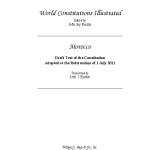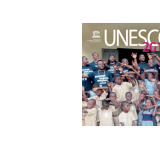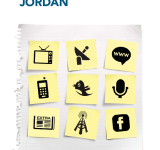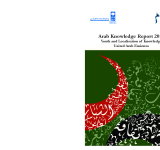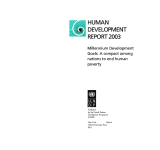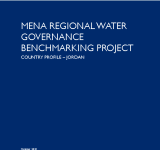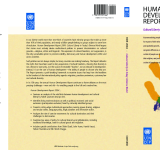technology
يناقش تقرير منظمة الأمم المتحدة للتربية والعلم والثقافة (اليونسكو) السنوي لعام 213 التحول الحاسم لليونسكو، عندما تبنت المنظمة نهجاً استراتيجياً جديداً في الدورة السابعة والثلاثين للأمانة العامة يركز
يتناول هذا المشروع الفرص والمخاطر العالمية التي أنشأها الانتقال من التقليدية إلى وسائل الإعلام الرقمية، ويكشف تأثير هذه التغييرات في الأردن في خضم حملة على حرية وسائل الإعلام بعد الانتفاضات في عام 211
يسلط التقرير الضوء على واحدة من أهم القضايا أمام المجتمع الإماراتي، وهي مسألة إدماج الشباب وتمكينهم من المساهمة الفاعلة في نقل وتوطين المعرفة باعتبارها نقطة انطلاق لإقامة مجتمع المعرفة في الدولة،
This report provides an assessment of the Millennium Development Goals;; laid out by the UN Millennium Declaration. The UN Millennium Declaration was adopted in September of 2000 as a commitment on the part of the world's leading nations to reduce poverty;; improve health and promote peace;; human rights;; and environmental sustainability. The Millennium Development Goals are specific;; measurable targets that aim to reduce extreme global poverty by the year 2015. This report analyzes the challenges and barriers to meeting these goals as of 2003;; examining the successes and failures of various nations and the gaps that exist between regions and countries with regards to economic growth and human development. This report then examines the successes and failures of public and private policies with regards to hunger;; health;; water and sanitation;; education;; and environmental sustainability. This report also analyzes the participation of civil society throughout the world and the mobilization of grassroots support for the various human development goals. Finally;; this report presents a number of recommendations on what countries can do to best support these goals.
The report is a Jordan country profile of the Regional Water Governance Benchmarking Project (ReWaB) and the results assessment of the project. The ReWaB is a project that aims to establish a system of water governance capacity and performance benchmarking for Middle East and North Africa countries. The report resents the projects' approach to water governance benchmarking;; brief overview of the political;; economic;; and social situation in Jordan;; the country's water availability;; and it also outlines the main users and managers of Jordan's limited water resources and identifies relevant trans boundary issues. With a description of the main actors in Jordan's water governance and their influence on functional performance;; the report presents and discusses the main findings of the Policy and Legal Analysis and the expert-based assessment;; which gauged the functional effectiveness of the Jordanian water sector and application of good governance processes in water-related decision-making. The report concludes by highlighting Jordan's organizing and building capacity and strategic planning in policy documents. It also notes areas with potential challenges such as the broad function of allocating water and mechanisms for water trades and complimentary conflict mitigation.
Accommodating people's growing demands for their inclusion in society;; for respect of their ethnicity;; religion;; and language;; takes more than democracy and equitable growth. Also needed are multicultural policies that recognize differences;; champion diversity and promote cultural freedoms;; so that all people can choose to speak their language;; practice their religion;; and participate in shaping their culture—so that all people can choose to be who they are. In recent years the Human Development Report has argued strongly that this is as much a question of politics as economics—from protecting human rights to deepening democracy. Human development is first and foremost about allowing people to lead the kind of life they choose—and providing them with the tools and opportunities to make those choices. The 2004 Report builds on that analysis;; by carefully examining—and rejecting—claims that cultural differences necessarily lead to social;; economic and political conflict or that inherent cultural rights should supersede political and economic ones. Instead;; it provides a powerful argument for finding ways to “delight in our differences”;; as Archbishop Desmond Tutu has put it. It also offers some concrete ideas on what it means in practice to build and manage the politics of identity and culture in a manner consistent with the bedrock principles of human development.
